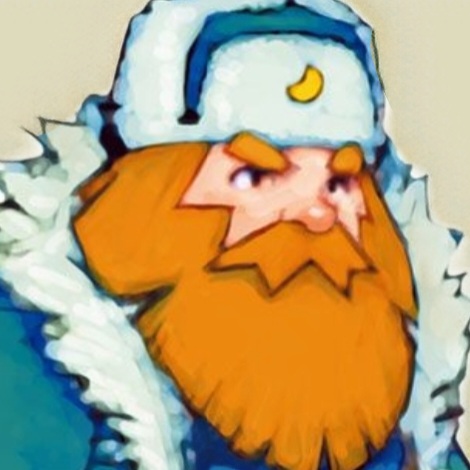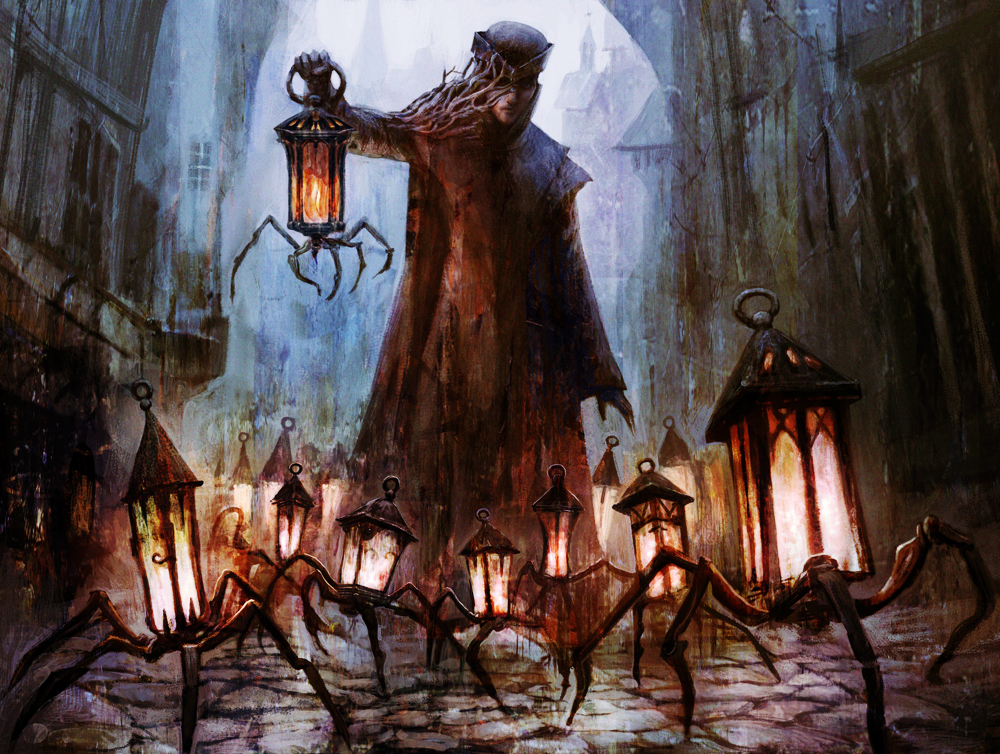I swear i see this behavior that’s supposedly an early childhood behavior in children 2-5 all the time online. People in team games who seem unable, incapable, not just of cooperating as a team but als unable to recognize cooperation as helpful or desirable.
Currently it’s my going theory as to why some people breeze through helldivers while others suffer great frustration with the game; team players with mediocre skills and basic game knowledge will succeed, while a group of four individuals who do not cooperate, even if each of htem has better shooting skills, movement, or response times, will fail.
And what’s fascinating is the people who seem unable to see and understand that. I’ve played large scale multiplayer games where the devs radically changed the core game experience because a player faction that leveraged team play and cooperation completely dominated other factions despite having, on average, less skilled players. Teamwork and communication were overwhelming force multipliers that the other factions could not overcome to degree that it was driving players away from the game.
My current jones is figuring out what drives a small but extremely vicious group of angry players in helldivers 2 and i think that ultimately, when analyzed from sufficient difference, the problem is a sub-set of players who cannot play cooperatively, do not realize they cannot play cooperatively, and so they feel bullied and persecuted when they fail in a game that requires teamwork and cooperation. For these players, unaware of their inability to cooperate, these failures can only be explained by malicious design choices by the devs. Since they do not or cannot understand that the game requires them to work with others to succeed the only explanation they can come up with is that the devs are attacking them. When a weapon is bugged in a way that allows an individual to bulldoze the game alone this group flocks to it and believes that they must use the weapon bc, from their perspective, that broken weapon is the only possible way to succeed.
They simply do not, maybe can not, understand that other players can and do succeed. They do not seem to see teamwork and do not understand on a conceptual level what teamwork is or what it accomplishes. They can only view the game from the perspective of themselves as an isolated individual.
And, so, when the devs fix a bug in a weapon that caused it to wildly overperform, these players believe they have been attacked for no reason. They were enjoying the game, then the devs maliciously broke their toy, now they cannot enjoy the devs. The only explanation they can conjure is that the devs are persecuting them out of malice.
For months I’ve been completely fascinated by the disparity by what players in online forums say about the game and what i understand about the game’s mechanics and what I observe in the game. Online people will say, with rigid and inflexible certainty, that it is impossible to complete the game without a specific “meta” loadout. They seem completely convinced of this. And the plain fact is that many players are able to breeze through the most challenging content with little difficulty. And the gap seems unbridgable. No amount of evidence will shift some people. Many of them very vocally reject any attempt at education.
It’s a personal concern to me because I do quite well at the game and play at the highest difficulty. Seeing a vocal minority of players demand that the game be made dramatically less complex and less challenging concerns me because if such changes are made I will not be able to enjoy the game. And the devs seem to be taking this minority very seriously and are describing changes they want to make to the game that will fundamentally change it.
And it won’t work. It’s a contradiction. It’s a four player, team oriented game. If it’s simplified to the point where individuals can succeed alone it will not be satisfying to team players. If it’s made to satisfy team players it will not be suitable for loners. The small dev team cannot bridge this gap by creating essentially two separate games to appease each group. And it seems like they’re going to try.
It’s very unfortunate. Part of how i figured this out was a long, somewhat heated discussion with a pair of software engineers about why some people had so much trouble with the game. They put forth various changes to the mechanics of the game, none of which seemed to me to be relevant or to address the problem. They, in turn, were short with me and began speaking like i was a child who couldn’t understanf simple concepts. And eventually a third party pointed out why we couldn’t agree.
They’re software engineers. To them the problem must lie in the software and the solution is to fiddle with it. I’m an anthropologist. I identified the problem as lying in the cultural beliefs and expectations of some players. The changes they were positing would all fail, not because of anything to do with their solutions, but becuase *the player population would never engage with the solutions". That was the gap. They didn’t understand that no matter how they fiddled with things, they were trying to appease a group of people who are completely disinterested in learning or change, and who will not deviate from their behavior the engage with changes in game systems, in-game attempts at education, or tweaks to the parameters of weapons and enemies. They thought i was an idiot who rejected all their proposals because i couldn’t understand the basics of games design, where I identified the problem as lying not within the game but within a subsection of the culture playing the game.
If that conversation sounds extremely frustrating; that’s what being an anthropologist is like all the time. We study culture, and for most people culture is just as invisible and inexplicable as quantum mechanics. It just doesn’t exist for most people and as such it’s excruciating trying to communicate about culture. Stem people especially believe that they’re rational individuals who exist completely by themselves and are quite hard to reach. Culture is soft and squishy, so it must not be real or important. Telling them that this is a cultural belief they hold does nothing to help the matter.
Not sure how accurate this is, but I remember when New Super Mario Bros Wii came out, there was a Nintendo Power article that noted that Japanese playtesters used the multiplayer features to help each other through levels, and american playtesters used it to throw one another into pits.
I know this is accurate because any time I’ve played this game, at least half the deaths were from throwing each other into pits
To be fair, throwing each other into pits is hilarious
This is one of the reasons why I was always better at battlefield than call of duty. Battlefield rewarded teamwork and squad co operation much more than call of duty. I was mediocre at twitch shooting and run and gun gameplay, but pretty good at support roles and anti vehicle combat.
The nice thing about battlefield is it kinda just works. If i play a squad with friends on comms its lots of fun but if i play with strangers its also fun. Comms isn’t really needed the games organically built with cooperation in mind and it kinda just happens. The only issue i have is sniper classes being the fallback when the team is losing rather than equipping smoke grenades and going for an aggressive push.
I have great admiration for game devs whose grasp of design and player psychology allows them to funnel players in to behaviors that support good game experiences without any systems that are visible to the players. I was always in awe of how the map design in planetside 2 funneled players in to dynamic massive battles while providing routes to break stalemates and supporting different kinds of play as the fight moved across different regions and biomes. It wasn’t perfect but when it worked it was elegant.
Hunt Showdown is another game that uses excellent map design, game mechanics, and understanding of player behavior to create a well defined game loop without any of the walls being visible to the players. The way the maps are laid out, in combination with monsters, weapons, and the game objectives, organically bring players together for exciting battles without the clumsy shrinking death ring that other battle-royale style games use to force confrontation.
Just popping in to say how much I love Hunt’s design in general. Map design, sound design, absolutely excessive weapon design & gamefeel (the reloads)

I’ve heard lots of good things about hunt showdown. It feels like a game that would be broken with hackers however does it have many?
Planetside 2 does battlefield on a much larger scale. If i could go back in time and play the late beta again i absolutely would it was the most fun multiplayer fps out there. Being in an outfit was a different dimension of play but even just squading with some friends or playing solo was great. Rush the crown for total warfare, storming the biolab for 3fps chaos or sometimes me and a friend whould just drive around backcapping zones playing a tense game against a handful of opposition sometimes even shifting the flow of the overall map.
Its not the same game anymore so even with a smaller playerbase its just kinda broken and p2w. Big shame that was don’t think there will ever be anything like it again.
I have 1500 hours in Hunt over the years and I can thinjk of one instance where i’m reasonably certain someone was hacking. Idk how well the game lends itslef to hacking. It does happen but in my experience it’s quite uncommon. It does take getting used to. You’ll get ambushed and ohk’d by headshots while you’re learning the game. Suppressed weapons are quite difficult to hear. You can shoot through most walls and players with experience and good map knowledge can fish for wallbang kills. Bullets have travel time so it can feel you’re hitting when the bullet goes an inch to the left.
For the most part i’ve found it a very positive experience. Folks mostly cooperate and work as a team. The in-game voip leads to friendly banter with other teams, and sometimes a truce to go hunt down the other teams and split the bounty. Mechanically the game is
 and they’ve smoothed out progression dramatically to make it easier to get started. Plus - new map and new boss just this summer!
and they’ve smoothed out progression dramatically to make it easier to get started. Plus - new map and new boss just this summer!
I always used smoke grenades to get more revives. Pop a few and revive the dead squad members in the smoke
Agreed! I greatly enjoyed the old battlefield games. I have very fond memories of playing the commander role in bf2 or 2142, assigning players objectives where they’d earn additional xp for helping the team, passing information about the game state to squad leaders, or just air-dropping supply crates on annoying snipers who were being a nuisance. The role tied the team together as a team. Same with multi-crew vehicles that required at least two people to operate, and many support systems.
I flat refused to play 2042 when i saw there was no command role, tiny squad sizes and very limited means of communicating and coordinating with the team.
And then battlebit swaggered in to the room with robust team comms, tons of important support roles, massive xp rewards for transport vehicle operators, and a bunch of other cool pro-social features.
I played the console version of battlefield 2 (called battlefield 2 modern combat) which is apparently a completely different game to the PC version. That was fun. Battlefield 4 will always be my favourite though, the gun balance in that game was perfect.
And you get all kinds of emergent micro-roles beyond just the class selection. I always hated driving tanks and never did it, but I was super good at fending of helicopters with the mounted machine gun
Yeah support/second gunner in tanks, boats and helicopters was a skill in of itself. I also liked to play it, and would repair the vehicle while performing that role. You could form a cool partnership with the main driver this way.
I wonder if this is an artifact of being online specifically. Many people struggle to conceive of the random people they interact with online as really people people, and just interact with them as if they’re part of the website/game. NPCs, in other words.
I don’t know. I do think that the loss of persistent, privately run servers contributed. There was a time when to play an online game you’d go to a server browser and join a private server run and moderated by real humans. No match making or p2p servers or anything. Most people had a few favorite servers they played on regularly and you’d get to know the other regulars. Most of those servers had separate web forums where you could talk to people. So there was a venue for a stable community to form. If you epic gamer momented to hard or were otherwise being a shit you could be ejected and banned. There was a social environment. With p2p and matchmaking there’s nothing. You’re thrown in to different groups every 10-20 minutes and unless you friend those people and acitvely seek them out you’ll never see them again. Your group is often limited to 2-4, at most six, people at a time.
Even if you avoid complete alienation you can only play with a handful of people at a time. Ranks and matchmaking mean there are consequences for screwing around too much - you have to at least try to play well to keep everyone’s rank up. If your friend’s rank is too high above or below yours you may not be able to play together at all.
Things weren’t great in the past but the mechanisms that existed for community building back then were in some ways more robust than they are now. There’s discord now that serves a similar role but with key differences - discords often aren’t attached to a persistent server so you’re less likely to be playing with all the people on your discord. You might be on a discord with people while your team mates and opponents are still abstractn depersonalized avatars.
Many people struggle to conceive of the random people they interact with online as really people people, and just interact with them as if they’re part of the website/game. NPCs, in other words
can confirm, i feel bad about the things i said to some poor canadian furry lib who wandered on here when federation happened, the rest of the libs, not at all
Teamwork and communication were overwhelming force multipliers that the other factions could not overcome to degree that it was driving players away from the game.
Isn’t this like, our entire niche as a species? It’s sad that so many people can’t seem to engage with it.
Yes, but capitalists benefit more from people embracing individualism and many people have been indoctrinated into that belief for multiple generations now. Because the US and many other places frame nearly everything as competitive instead of cooperative, we have started to default to that even in settings that are obviously meant to be cooperative.
It is really sad. Then again, our faction were purple spandex clad posadist commies armed with gay disco lasers, while the other factions were literally fascist proto alt-right assholes (the in-game faction and the largest groups in that faction) and the thrid group had some sort of union-busting libertarian capitalist theme.
I think we had a home field advantage.
Bit late to the party, but EVE Online?
Planetside 2
If you haven’t seen it already, I think you’d find Why it’s Rude to Suck at Warcraft an interesting watch, although it’s about the opposite problem (a small group of hardcore players pushing for changes that make the game less enjoyable and more toxic). As a former WoW player who quit largely due to how awful people could be in raids it shed a lot of light on how things got so bad.
I no longer play co-op games with PUGs (or much co-op at all tbh), but that sounds super frustrating. I studied CS, but I also studied a lot in the social sciences and was so disheartened by how completely incurious most of my CS peers were about anything outside of STEM. It’s bonkers to me that we weren’t required to take so much as an ethics course considering how much of our world is shaped by code. Not that it’d be a panacea, but judging by their unalloyed excitement at the prospect of working for big tech, finance, arms manufacturers, and three-letter agencies, I genuinely don’t think most of them saw programming as anything other than a tool to solve interesting problems–nevermind whether those “problems” are actually problems and what the knock-on effects of “solving” them might be. Maybe forcing them to consider the consequences of their actions might at least give them pause before they help implement a machine learning algorithm for denying people home loans or whatever.
I studied CS, but I also studied a lot in the social sciences and was so disheartened by how completely incurious most of my CS peers were about anything outside of STEM. It’s bonkers to me that we weren’t required to take so much as an ethics course considering how much of our world is shaped by code.
I feel like I just had this conversation with one of the few homies I have who unvarnished knows my politics and knows how much I outright despise what I call ‘techbros’ despite swimming in the same professional pools as them; like-- my reason for it is and always has been to go into games. I know finance, weapons, and surveillance would all pay hand over fist more; but for me, my principles and the intersections of my identity mean more to me than easily-spent, easily-devalued blood money.
And that’s why I can’t stand techbros. Because they don’t even seem to consider the ethics of whose orders they’re carrying out; and as a result, I have no faith in what fruit their works will bear.
I have consistently good experience with pugs/pubbies and i sincerely wonder if it isn’t because i have a deep man voice that is culturally associated with competence and authority regardless of how full of shit i am at any moment.
I think there’s a long standing trend of the hard sciences dismissing the soft sciences out of hand because we can’t stick all of humanity in a petri dish in order to perform experiments according to the scientific method and arrive at rigorous results. The hard sciences often dismiss us because our tools are limited in what kind of knowledge we can produce. But it seems they often dismiss the entire notion of social sciences and express that if the problem is too complex to apply the scientific method then it shouldn’t be investigated at all, even going so far as to assert that the squishy stuff isn’t real. It’s unfortunate. I perceive stem as being somewhere between severely limited and totally helpless as a result of their rejection of the social sciences and liberal arts. I sometimes express it by saying stem knows how to do things but they don’t know why to do things and they scoff at all the forms of knowledge that could tell them why to do things. I’ve observed that many engineers who care about the whys, about the human cost, struggle with the industry because so much of tech these days is espionage, manipulation, or just outright building guns.
highschool explanations of “soft” science methodologies are pretty abysmal. they should spend more time on how we know what we know about these things and how you have rigor without sterile repeatability, but then you couldn’t teach economics or psychology at that level at all.
I found a YouTube link in your comment. Here are links to the same video on alternative frontends that protect your privacy:
I thought parallel play was an autistic thing where people bond with others by being nearby, but focused on separate tasks. Like one person playing DS on the couch and another person reading a book next to them. It’s not about cooperation, exactly, but about the way people socialize differently.
parallel play is my absolute jam tbh my partner and I do it all the time. it really does feel like we’re doing something together without suffering through trying to find a co-op game.
i have a room I could go to to play games but I prefer to be near him even if i dont really follow whatever he’s doing
edit: my post is not related to the original post but I refuse to delete it
Yeah, I’ve heard that. Idk what the science says but it’s a good explanation for that close but independent kind of socialization. I did think that when I was writing this it sounds like a bad straw-autistic person from popular media. And I know that’s not true, and that you can’t generalize about autistic people. Most of the people in my gaming group are autistic. It’s a very social group and we work very well together when we get in to the groove. And there is, as you mentioned, many times of companionable silence when folks just know they’re in the same discord together, but not saying anything. To me it completely bears out the observation that autistic people do just fine in social settings when they don’t have to deal with allistic social expectations.
Reminds me of a great line about this in simulacra and simulation. “Childishness” is essentially an illusion
I think this also explains why a lot of neurodivergent adults are considered “childish” by corporate fucks by how they see problems in relation to how much. Maybe I should get into more team-based games because I don’t have experience with them, but it truly sounds like you’re describing a hyper-individuality bleeding through another domain. Love to live in a world with a bunch of individual people solving their individual problems and occasionally bumping in to each other to solve a problem collectively.
They’re software engineers. To them the problem must lie in the software and the solution is to fiddle with it
This is really funny to me because I do somewhat software-engineering oriented work, and I always end with “This is such a flawed design that needs to be reconstructed/blown up and whoever built it was only thinking about getting the job done to satisfy their personal interests.
What about the far less common phenomena of the player who will only play support/heals? This player will sacrifice themselves to protect the team even in situations where it probably wasn’t necessary. I’m not an anything-ologist so I’m always so fascinated when someone talks about stuff like this.
When you say techbros often don’t think they’re affected by culture because of culture; are you saying that it’s techbro culture to pretend culture is fake?
From my memories of gaming back in the day there’s long been an issue of gamers not wanting to play support classes. I remember healers and clerics being considered feminine roles, and that a lot of people, mostly young men, wanted to be some kind of dps character that was viewed as more masculine. I also recall a general perception that healers were subordinate to damage classes and that the healers were somehow not really playing the game. Like they were “just” supporting the other characters, not really playing and doing the fun jobs.
Those perceptions were mostly bullshit. In many games strong support players determined wether a team won or loss and mmorpg groups simply could not function without a healer, and you could survive a crappy dps but you couldn’t survive with a bad healer
The issue persisted in some shooter games. Most people wanted to shoot people instead of healing. There were mechanical problems, too - often the game mechanics of supports were very limited. A healer or a mechanic would just look at a paladin or a vehicle and hold down the “heal” button. Then the other players would run off to do much more mechanically complex gameplay.
There’s definitely a great difference in attitudes. Combat players can focus on glory, and it doesn’t necessarily matter if the team wins or loses. Supports, on the other hand, are acting as force multipliers. They can give the team enormous boosts but at some point the rest of the team has to do their job. A dps or front line player doesn’t necessarily need to care about the team while a support’s entire game is tied to the team.
I had weird stats when I played planetside bc I spent most of my game time sitting in the back of an apc with the map opened talking to my squads on team speak. I had a lot of play time but a lower level and rank compared to equivalent players. I played an engineer mostly so i could protect spawn points, which meant i spent less time shooting and was often focusing on healing a spawn point even if it meant my character would get killed. Anything to keep the spawn point up so my team could keep sending in reinforcements for even one second.
I’d say the other extreme from your team focused supports would be “snipers”. Of all the play styles i view it as the most aggressively anti-socialm sniper style players, at least in the olden days before a lot of anti-sniper mechanics were developed, would sit far out on the edges of the map. Normal players often could not meaningfully damage them while they could kill others in a single hit. Sniper style players, i don’t view them as players, i view them as some kind of social parasite. They don’t participate in the game, instead they disrupt the game for everyone else. They sit at a range where they can kill others, interupting the game, but they themselves can’t be killed. They mostly don’t contribute to objectives or team fights. “Sniper” in this sense also encompasses players who focus on aircraft, or in some games on ground vehicles. To this kind of player all the other players in the game are targets or hinderances. Their gameplay consists largely of interupting the play of others who have no meanignful way to defend themselves. They generally aren’t in communication with their team and aren’t cooperating. I used to take great join in deep flanking to hunt snipers. I can’t shoot for beans but back in the old days snipers were often very fixated on their shooting and wouldn’t notice someone walking up from behind to blast them. To me that highlights the disconnect - they’re so focused on their disruptive style of play that many of them didn’t seem to consider that anyone but other snipers could effect their game. They weren’t really playing with others, they were standing outside the basketball court throwing rocks at people.
And you do get combat focused leaders. People who use their skills at communication, problem solving, and leadership to support their team from outside of the games mechanical systems. Even very simple leadership like telling the team to go to the A capture point or the B capture point could greatly contribute to a team’s success. In games like Planetside or EVE leader roles could happen without the players even being in the game program. They might just be in the communications program, reading maps, crunching numbers, directing their subordinates, and passing information to other commanders.
And those players varied, too, in how social they were. My group had a system of “fun check” where if the team was bogged down in a fight that was going nowhere team leaders were expected to call “fun check” on the mic and if a certain ratio of players expressed that they weren’t enjoying themselves we’d retreat and regroup, or move to another area, or do something goofy like getting a bunch of spaceships and crashing them all in to the enemy base. The goal was to remember that this was supposed to be a fun, social experience and prevent people from reaching a point where they became frustrated or upset.
And then on the other side you had leaders like the old “50 dkp minus!” Meme guy who could be very harsh and seemed less interested in their team mates as players of a game intended to be fun.
There’s definitely a negative, harmful kind of social player. Let’s call them try-hards or sweats. Plkayers who are very aware of the team but consider the team an impediment to their own glory. These players do interact socially but tend to do so in a negative manner where they berate others for perceived mistakes or bark orders at others without concern for whether anyone is having fun. This kind of player seems to view the social component entirely as a tool for them to achieve their desired glory and is generally indifferent to the actions of others unless he perceives them as failing him or getting in his way. Emphasis on “he”, folks with that social style seem to be highly gendered.
Gender does play a huge role in this, come tot hink of it. At least in the past their was pressure for women to take “passive” feminized support roles and to avoid leadership positions. Plenty of people defied this of course. We made it a point to put every new player in command of a squad on their first day to aggressively break the idea that you had to be “good” or popular to lead. We’d give these new squad leaders support and answer their questions, but they were encouraged to make decisions. It was important to get women to take leadership roles in this ad-hoc way to break down gendered stereotypes and maintain that culture where women were allowed, expected, and supported as leaders. It certaintly wasn’t perfect. We tried, and some were more committed to it than others.
I’ve observed many women are uncertain about their skills and competence and often apologize, i assume to try to diffuse potential critical comments or frustration from men co-players. It’s honestly heartbreaking. A few months back I had a woman who felt she had to apologize repeatedly to the team. She was playing the game at the very highest level of difficulty, in a supporot role, and was absolutely pulling her weight and contributing to the team’s victory. Not only had she nothing to apologize for, but she was performing in probably the top 95% of all players despite having limited time in the game. She was excelling beyond others but still felt she needed to protect herself by pre-emptively apologizing to man peers.
I find it so frustrating that women have to take these actions to protect themselves from gendered social violence, despite having every right to be there and expect fair and compassionate treatement. My group has always worked from a bedrock of understanding that active, enthusiastic cooperation is far more important than individual skill, but most groups aren’t like that and we aren’t perfect about it. Gender, disability, income and poverty, race, all are very frought in gaming. I’ve met a number of women who won’t use voice comms under any circumstances because their voice would out them as trans and they’d face immediate abuse. Revealing yourself to be a woman in any manner can lead to immediate genedered social violence. People with disabilities may perform at different levels compared to abled people. That’s doubly a problem where game stats are concerned. A person’s k:d doesn’t reflect their contribution either to a groups victory in game or the groups social cohesion and social benefit to it’s members. The numbers on the screen only show what someone’s shooting skills are relative to others, and an ableist society can be quick to level social violence against a disabled player.
I’m rambling at this point.
Regarding tech bros - tech culture does seem to hegemonically enforce a belief that humans are individuals that exist in themselves rather than humans as nodes within a complex social network. In their culture the person exists alone and relying on formal or informal systems of support shows both weakness as well as foolishness for believing such things are real. Tech culture as a whole seems to disdain a broad education, especially in the humanities, which in turn leads tech bros in their ignorance to think that ideas important to them are either something they came up on by themselves or they ascribe themselves to tech figures they idolize. The culture seems very competitive and cutthroart; loyalty and compassion anre disincentivized by the ruthless business practices of tech corps. There seems to be a widespread belief that formal education and knowledge in the arts and humanities is useless and irrelevant at best, or entirely false woo woo nonsense at worst. The notion of culture, of an all-encompassing and inescapable mesh of practices, norms, and beliefs that define the parameters of who we are as people and as societies, seems very much anethema to their conception of themselves as self made men and their slavish adherence to great man theory. Again, generalization, a very broad br
I remember healers and clerics being considered feminine roles, and that a lot of people, mostly young men, wanted to be some kind of dps character that was viewed as more masculine. I also recall a general perception that healers were subordinate to damage classes and that the healers were somehow not really playing the game. Like they were “just” supporting the other characters, not really playing and doing the fun jobs.
Where do tank characters fit into this in your experiance?
Regarding tech bros - tech culture does seem to hegemonically enforce a belief that humans are individuals that exist in themselves rather than humans as nodes within a complex social network. In their culture the person exists alone and relying on formal or informal systems of support shows both weakness as well as foolishness for believing such things are real.
The closest I’ve seen most STEMbros come to acknowledging forces beyond the individual is Conway’s Law.
What about the far less common phenomena of the player who will only play support/heals? This player will sacrifice themselves to protect the team even in situations where it probably wasn’t necessary. I’m not an anything-ologist so I’m always so fascinated when someone talks about stuff like this.
I enjoy playing this role but usually because it’s actually the lynchpin of the team and has the highest level of skill and responsibility (in the actually challenging content not the storyquest content). DPS on the other hand is usually for people that chew rocks and doesn’t ever have to think about anything other than attacking a thing and dodging circles.
Support in a raid is the hardest role to play with the most important decisions.
It’s long been bizarre to me how the support role can be feminized and devalued while also being, as you say, the lynchpin that keeps the whole machine running and separates victory from defeat. Many groups hold their healers up as the heroes who make it all work, while some dismiss support as a sort of women’s domestic labor. Gennnnnnnnnnnnnnnder!
The tank role is also very important but having played both I’m quite sure that healer is more stressful. The tank only has one enemy in the raid whereas everything in the raid (friendlies and monsters) is the enemy. There’s always that 1 player who does not move out of easily avoidable damage too.
Many players are disinterested in engaging with/learning about mechanics (including the concept of teamplay) and solely want the entertainment power fantasy that the game superficially (as ive experienced through the marketing material and word-of-mouth I’ve seen/heard for HD2) seems to present itself as (caveat- I haven’t put much time into this particular game).
The development team will have to pick whether it wants to cater to its team-composition/tactics minded playerbase or its “group solo” players. I bet it will go towards the solos as I imagine they make up a vastly larger portion of the audience because it requires less effort to engage with a game that way and retaining the larger player base is crucial to hit their recurring revenue (mtx) sales that have plagued most game KPIs for years now (especially live-service games).
It’s sad to me because high-coordination games are easily my favorite multiplayer games, but I think we’ve hit a point where games are going to have to be extremely explicit (including marketing materials) about the necessity of coordinated group play being part of the core game experience in order for that player base to find it and to deter players who aren’t interested in that play style from purchasing it and then trying to change the group gameplay mentality of the game.
Massive props to games (like Planetside 2 and older Battlefields mentioned in this thread) for organically funneling players into semi-coherent teamplay strategies, but I feel this is substantially harder to achieve from an in-gamr incentives standpoint in solely co-op PvE games. I’d love examples of games that do this well if anyone has any as none really come to mind.
The funny thing about the “power fantasy” crowd; the marketing for the game is intentionally fascist propaganda. If you watch closely the “heroic” helldivers are murdering alien bugs who are minding their own business. The helldivers are stabbing a helpless bug to death with their flag them do a bro-y chest bump while strike fighters fly overhead. In the gameplay video trailers you can see the players blowing each other up by accident a number of times. That’s what let me know the game was going to be a worth successor, on of the trailer players beaning their allies in the head.
But it’s all silly. It’s propaganda. All the in-game portrayals of the helldivers as unstoppable heroes is a joke. They’re glass cannons with five minutes of training who get thawed out of a cryo tube, fired out of a giant gun at a planet, and die screaming five minutes later when they’re being torn apart by giant bugs and their buddy oopsies a cluster bomb air strike right on top of it.
It’s a very deliberately, joyfully silly game. You are immensely powerful, you’ve got massive starship guns at your finger tips, but you aim them by throwing a laser baseball around and there are absolutely no safety features so if the baseball bounces off a tree and lands at your feet them you’re boned.
The game is an open, obvious mockery of Spess Mehrines and the fascistic xenophobic war propaganda military sci-fi genre and so many people just don’t get it.
It goes further, in the lore the bugs produce space oil. The bots were used as labor, rebelled, and now exist as robo space communism. The high command refuses to fully win against the bugs because they produce the space oil. They can’t win against the bots because they build fleets with uploaded backups into deep space and whenever they lose their homeworld a reclamation fleet comes out of hibernation. Similar to how the conditions of capitalism always lead to a new workers movement and class consciousness.
One of the npcs on your ship says something like “the terminids are ruthless expansionists. We’ve discovered them on every world we’ve tried to colonize”.
It’s a very clever game.
L4D1 closeting?
Stem people especially believe that they’re rational individuals who exist completely by themselves and are quite hard to reach. Culture is soft and squishy, so it must not be real or important. Telling them that this is a cultural belief they hold does nothing to help the matter.
Having just had my elective sociology class as a stem them, this is actually something I’m fighting to hold onto-- I never really tried to approach “the solo queue issue” where actively-used communication channels on one team typically trumps the raw skill but radio silence of the other team from a cultural analysis level; and I rly think you’re onto something.
You should develop this out into some kind of study for people to link the same way people tend to link David Sirlin’s “playing to win” writeups; maybe it’ll prompt Gamers™ to better themselves enough for the kinds of people that tend to ideologically solo-queue only because of the way groups of Gamers™ tend to get actually want to talk to them
I fucking hate STEM brain. The most blinkered, narrow-minded people with a smug and unshakeable belief that they already know everything worth knowing
This is why we need more Marxist stem people
Effective co-operation is a skill. This is a skill issue. These scrubs need to git gud.
When u lose 1 game of overwatch
The general public has made online gaming unbearable for me as of late. Unless they are real life friends, I tend to avoid games that require CoOp. I still play WoW and am eager to see how the “Follower Dungeons” go, because it will give my casual ass a way to do dungeons without being called a slur for not min/maxing my character with the meta build of the week.
That being said, when I do end up playing with strangers I try my best to be pleasant and honest about my skill level and knowledge. Again, I am a very casual player and am only there to have fun and see big crits, I don’t care about speed-running 15 year old dungeons for the sake of some achievement system.



















